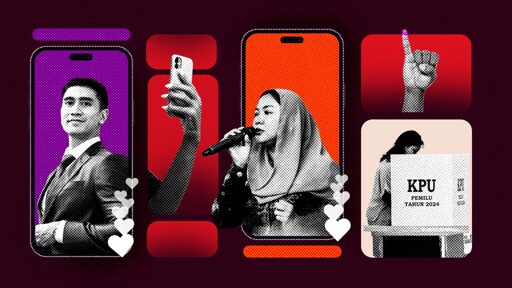Of the more than 3,000 candidates who ran for seats for provincial governors, city leaders, and regents across the country, more than a dozen were influencers. Shu, 37, has more than 200,000 followers on TikTok and about 2.8 million on Instagram. She has been a member of the NasDem Party since 2018, often seen at campaign rallies for party leaders. Still, it is through her social media platforms that voters in Cilacap in Central Java know her best.
Shu did not win, but she is among dozens of influencers in Indonesia trying to parlay their social media success into a career in politics. More than 20 influencers were elected to the Indonesian parliament in the national election in February, the highest number so far. That shows that influencers are gaining the trust of voters, Pradipa Rasidi, a digital anthropologist, told Rest of World.
While Indonesian political parties have a long history of recruiting famous people to boost their chances in polls, the fact that this has now become routine underlines a larger issue of the parties having “failed to foster a new generation of politicians,” Titi Anggraini, an advisory board member at the advocacy group Association for Elections and Democracy, told Rest of World.
With few strong candidates, “they have to increasingly rely on influencers to win elections,” she said. Politicians tend to pick celebrities because of their fame and following rather than their leadership qualities because “people ultimately vote for familiar faces over politicians who they don’t know.”
Candidates who run for office don’t need to have a political background or other relevant experience. But what is worrying is that even after being elected, “most celebrities and influencers don’t spend enough time learning and understanding the party’s ideologies … so they focus more on appealing to people’s emotions and less about educating them, or themselves, about the programs and policies,” Titi said.



0.4% of candidates are influencers, this doesn’t seem “so many” to me